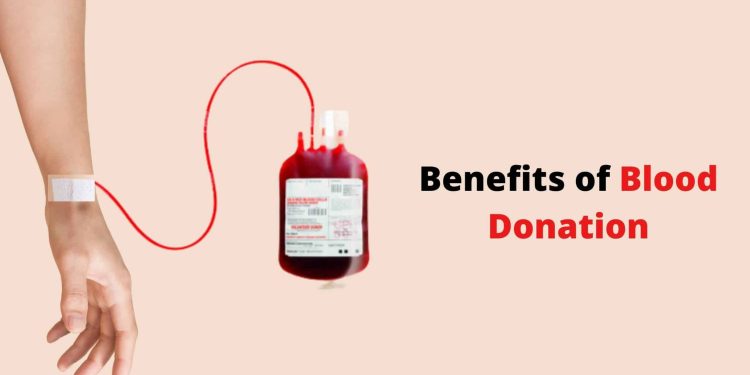Blood donation is an important aspect of healthcare in Ghana, as it is in many countries around the world. Ghana relies on voluntary blood donations to meet the needs of patients who require blood transfusions due to medical conditions or accidents.
If you’re thinking about donating blood, there are a few things you should know. First, don’t forget that blood donation is a life-saving procedure. Second, make sure to research the different donation centers in your area so you can find the best option for you. And finally, be sure to ask the staff at each center what they need from you in order to donate successfully.
Blood donation is a voluntary act that can save lives. In the United States, there are more than 60,000 blood donors per week. Here are 10 things you should know before you donate blood.
1: What is Blood Donation?
Blood donation is the process of giving blood voluntarily to help save the lives of others. It is an important part of health care, as donated blood can be used in a variety of medical and surgical treatments. Blood banks, donation centers, and donor services collect, test, store and distribute donated blood to those in need. Donating blood is a safe and easy process that not only benefits the recipient but also the donor. Donors may receive health screenings, such as a cholesterol check, which can help to identify health problems before they progress. Additionally, the act of donating blood can create a feeling of satisfaction and purpose in donors knowing they have helped another person. The process of donating blood typically takes about 45 minutes from beginning to end and requires no preparation from the donor. It is important to ensure that all blood donations are safe by following strict guidelines for screening and testing before it is distributed for use. Blood donation is an easy way to make a huge difference in someone’s life, so if you are eligible to donate, consider doing so today!
5: Who Can Donate Blood?
Donating blood is a great way to help save lives, but who can donate blood? Blood banks and donation centers have specific requirements for who can donate. Generally, a person must be in good health, at least 18 years old (or 16 or 17 with a signed parental consent form) and weigh at least 110 pounds to donate. Additionally, donors should not have donated blood in the past 8 weeks. Other donor services may have additional requirements such as a minimum hemoglobin level or proof of good health. All potential donors must answer a few simple questions about their health, lifestyle and travel history to ensure they are eligible to give blood. After answering the questions, the donor will have their temperature, pulse, and blood pressure taken to make sure they are healthy enough to donate. Once the donor passes these screenings, they can donate! Donating blood is a great way to help others and all those who meet the requirements should consider donating today!
What are the Risks of Donation and Receiving Blood?
Donating and receiving blood at a blood bank or donation center is an important part of our healthcare system, but there are risks associated with both activities. Donors must be aware of the health risks that come with giving blood, such as getting an infection or having an adverse reaction to the donation process. For example, a donor may experience light-headedness, dizziness, or even fainting during the procedure. Receiving blood also poses some risks, such as getting a blood-borne infection, having an allergic reaction to the transfused blood, or suffering from a severe reaction called transfusion-related acute lung injury (TRALI). To minimize these risks, donors and those receiving blood should be screened for infections and other conditions before the transfusion. Additionally, donation centers should take every precaution to ensure that all donated blood is safe and sterile. By being aware of the risks associated with donating and receiving blood, we can help ensure that our donor services are as safe as possible.
8: How Much Blood Do I Need to Donate?
Donating blood is an important way to help those in need, but how much blood do you need to donate? It depends on the donation center and the services they offer. Generally, a full donation of blood is about 500 ml, or just over two cups. This amount can vary slightly depending on the donor’s weight and the type of donation being made. You may be asked to donate a smaller amount of either whole blood or specific components like red cells or platelets. Blood banks and donation centers will typically provide information on their specific requirements for donating. They may also have donor services that can answer questions about the amount of blood needed for donation. By donating even a small amount of blood, you can make a big difference in helping those in need.
9: How Long Will it Take to Get My Blood Back?
If you’re considering donating blood to a blood bank or donation center, you may be wondering – how long will it take to get my blood back? Generally, when a person donates blood, it takes around 24 hours for their body to replenish the volume of blood lost.
Benefits of donating blood
Donating blood is a selfless act that can help save the lives of others in need. By donating blood at donation centers, you are playing an important role in providing much-needed resources to blood banks. Donor services are constantly looking for more people to give the gift of life. Not only does donating blood help those in need, but it can also have positive benefits for the donor. It can help reduce the risk of heart disease, reduce iron levels, and help keep your weight in check. Donating blood can also be a great way to give back to your community. Donors are helping to ensure that blood banks have a steady supply of safe and reliable blood and blood products. Furthermore, donating blood is free and there is no charge to donors. While it may take a few hours out of your day, the rewards are priceless. Making the decision to donate can be a rewarding experience, as you are helping to save lives and make a positive impact on your community.
Conclusion
If you are interested in donating blood, please contact your local blood bank or hospital for more information.































